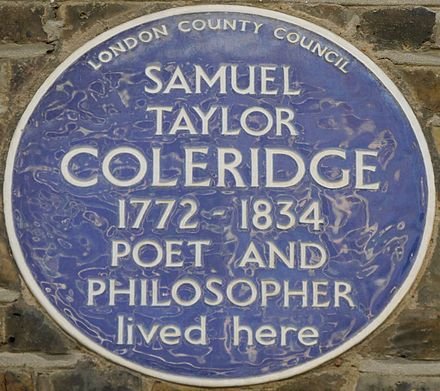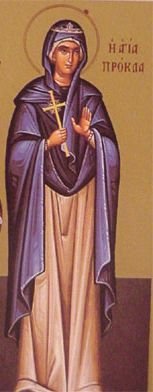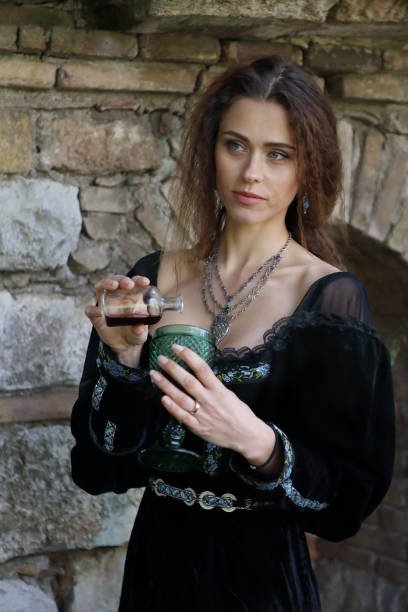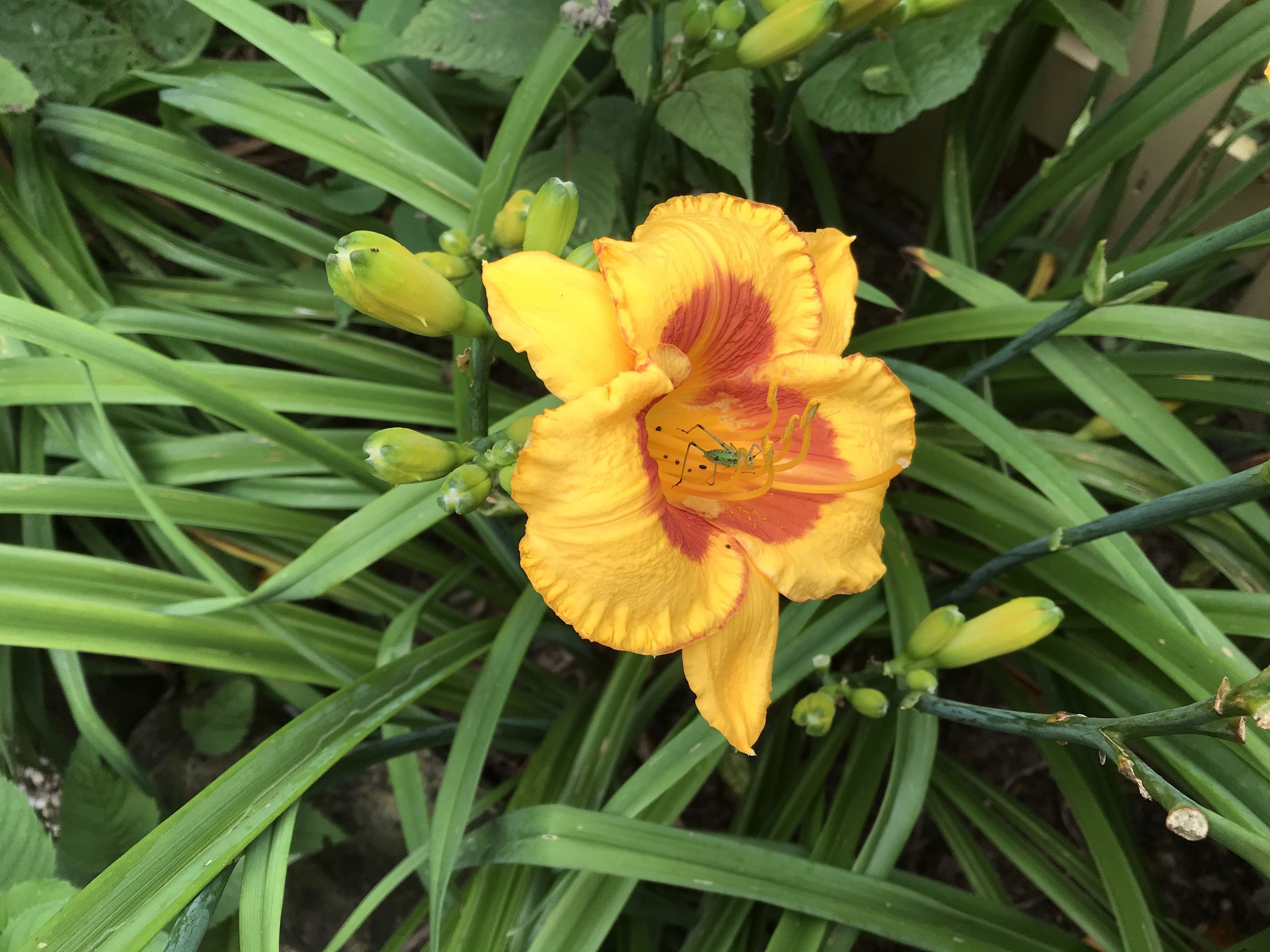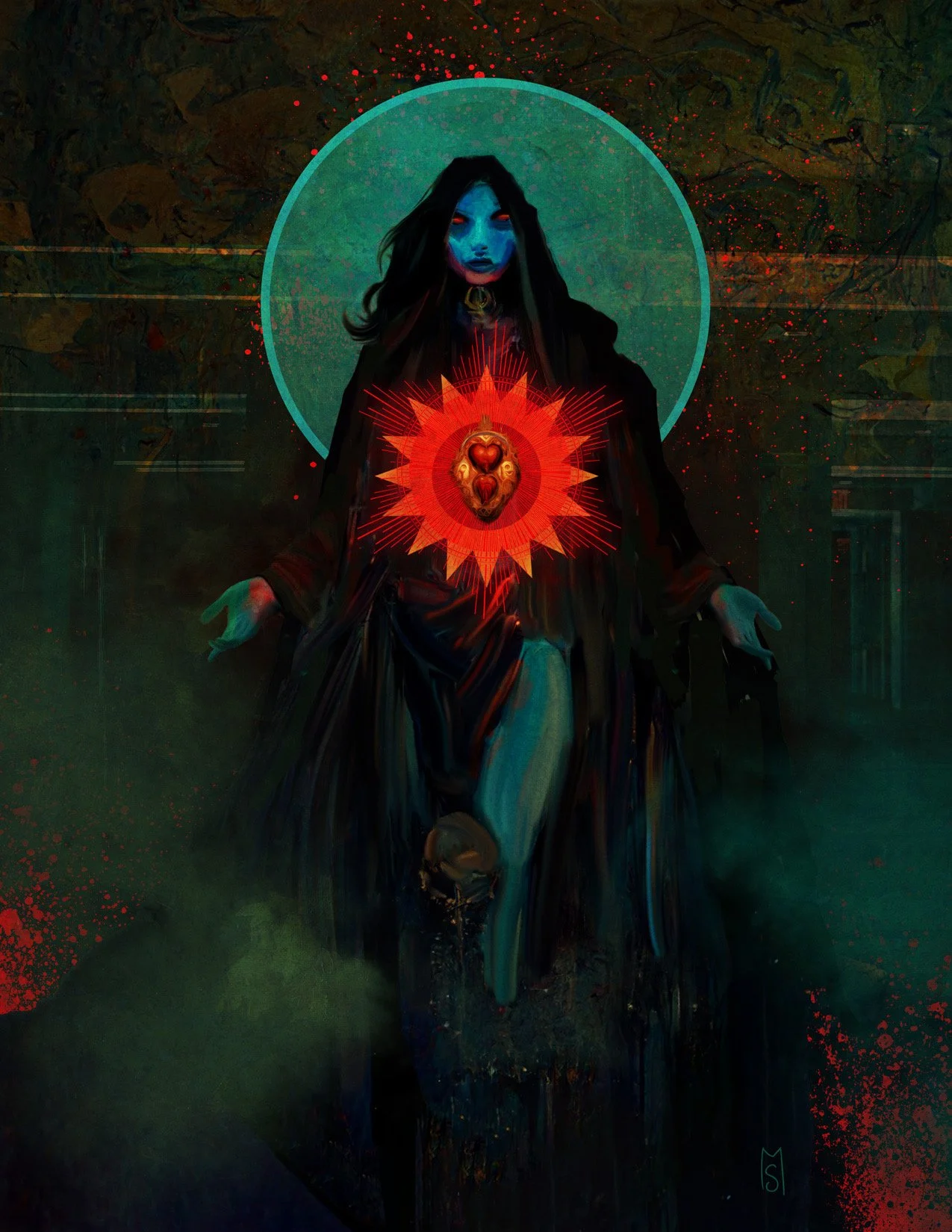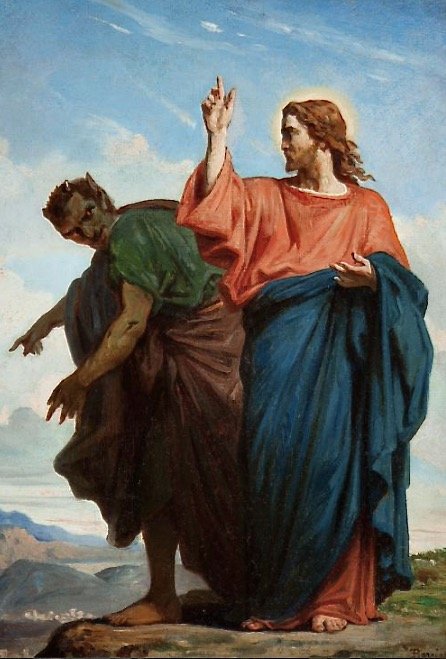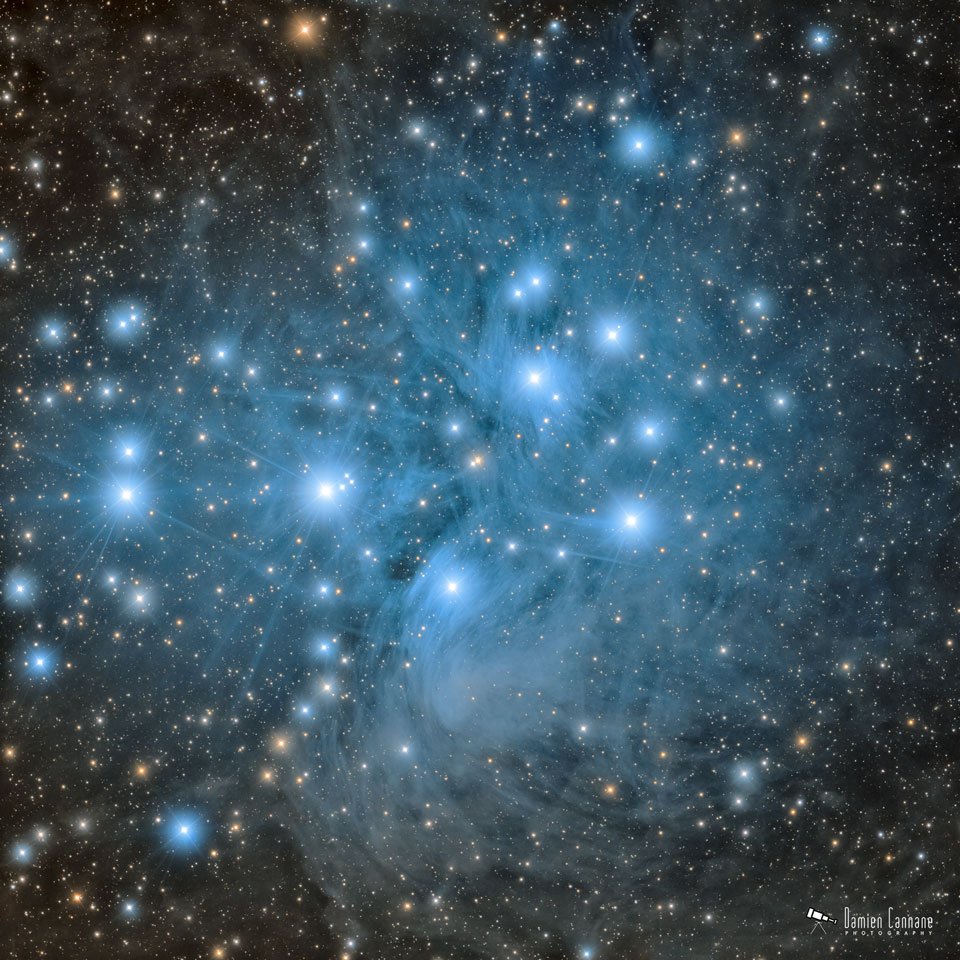I have been reading and thinking about this wonderful poem—The Rime of the Ancient Mariner—for several weeks now. I even bought a Klingon version of the text [with translation] and Gustave Dore’s illustrations. I have read the poem beginning to end at least three times now, along with rereading various sections of the seven section poem a number of times. Not until I chanced upon a section of Bishop Fulton Sheen’s Life of Christ this morning [secondary causes] that I began really to understand it. The poem after all essentially begins with the image of a Wedding and with one of the Bridegroom’s kinsman being stopped and held by the storyteller, the Ancient Mariner:
It is an ancient Mariner,
And he stoppeth one of three.
'By thy long grey beard and glittering eye,
Now wherefore stopp'st thou me?
The Bridegroom's doors are opened wide, 5
And I am next of kin;
The guests are met, the feast is set:
May'st hear the merry din.'
He holds him with his skinny hand,
'There was a ship,' quoth he. 10
Bishop Sheen’s point makes clear to me the antithesis that takes place in the poem. As the Bishop explains, in the Gospel of John, Christ’s revelation of who he is begins, somewhat reluctantly, at the wedding of Cana, which would have been a time of union, of joining together a man and a woman, a time of joy, of guests, feasting and celebration with, of course, plenty of wine. Sheen is contrasting the feasting and joy of the wedding and the Public Revelation that comes with the first miracle with the sorrow of the crucifixion that looms in the future:
“That counterpoint of joy and sorrow in the life of Christ is found again in His first miracle which took place in the village of Cana. It is part of His pattern, that He Who came to preach a crucifixion of disordered flesh, should have begun His Public Life by assisting at a marriage feast.” (Sheen, 85)
Sheen explains the symbolic aspect present in the event:
“A marriage feast is an occasion for much joy; and wine is served as a symbol of that joy. At the feast of Cana, which had such symbolic importance, the Cross did not cast a shadow over the joy; rather the joy came first, and then the Cross. But when the joy had been accomplished the shadow of the Cross cast itself over the feast.“ (Sheen, 85)
Significantly the poem begins in the present tense, with a fact and an action: “It is an ancient Mariner, / And he stoppeth one of three.” Suddenly we are present there too and do not find the man’s question unreasonable: old man, why have you stopped me? The doors of the hall are wide open, I am the Bridegroom’s next of kin, the guests are gathered, the feast is ready, and you can already hear the merriment within [“the merry din”].
The answer to the question, in a sense, reflects the pattern in the Gospel story: on the one hand, there is a wedding celebration and all that represents, as Sheen makes clear; on the other hand, there is, as immediate as the Wedding, a Story! “There was a ship…” Over against the significance of the Wedding, there is the significance of the Story, and the Story is one of sin, death, alienation and redemption. Here indeed, I think, the shadow of the [Gospel] story falls across the meaning of the Wedding story taking place over against the Mariner’s retelling.
Before we deal further with the pattern of events in the poem, the journey, there is another reference from Sheen that I would like to cite as it may shed some light [pun intended] on the significance of two dominant images occurring throughout the poem—the sun and the moon:
“What a magnificent valedictory! She [Jesus’ mother, Mary] never speaks again in Scripture. Seven times she had spoken in the Scriptures, but now that Christ had shown Himself, like the sun in the full brilliance of His Divinity, Our Lady was willingly overshadowed like the moon, as John later on described her.” (Sheen, 91). The “valedictory” Sheen refers to here is her command to the wine-steward: “Do whatever He tells you.” Whether or not the sun is an image of the divine son in the poem or the moon an image of Mary his mother, their meaning in the poem is worth attending to and at times tends to reflect the action in the poem
The journey and the story begin: “There was a ship” and like the wedding the voyage begins “merrily” as well:
'The ship was cheered, the harbour cleared,
Merrily did we drop
Below the kirk, below the hill,
Below the lighthouse top….’
Charles Williams has written [somewhere] that there are two ways into the dance: the way of the affirmation of images and the way of the negation of images. In reference to God, for example, this also is Thou; neither is this Thou. On the one hand, since God is the source of all being, all images can reveal God, their creator; on the other hand, since no image, no thing, is God, all images can hide or conceal God. Marriage is the central event Williams associates with the way of affirmation; the hermit (or monk) is the vocation he associates with the way of the negation of images. In The Rime of the Ancient Mariner the Mariner doesn’t choose the way of the hermit though his action causes him to experience it; Death takes his 200 mates while Life-in-Death wins him, apparently. The poem, however, brings him face to face with the real Hermit near the end of the poem.
The act that causes his estrangement occurs at the end of section I; however, first we are introduced to one of the central images of the poem, the Albatross:
At length did cross an Albatross,
Thorough the fog it came;
As if it had been a Christian soul, 65
We hailed it in God's name.
It ate the food it ne'er had eat,
And round and round it flew.
The ice did split with a thunder-fit;
The helmsman steered us through! 70
The fact that the crew “hailed it in God’s name” powerfully suggests that we should see the bird as an image of the way of affirmation: the presence of the divine in the mariners’ lives; the language even suggests that the mariners believe, for a time, that bird is in some sense rescuing them from the terrible physical conditions involving ice and wind. The southern region of ice into which the ship has been driven may also reflect the final circle (9) or condition in Dante’s Inferno, the region of betrayal where all humanity is lost and the human soul remains forever frozen in the sin it has refused to repent and has preferred to God. In any case the Mariner likewise sins greatly by destroying the image of the divine, the “pious” bird, and thus betraying the creature and violating the law of hospitality; they fed the Albatross “food it had ne’er had eat,” (even suggestive of the Eucharist) and the ancient Mariner “inhospitably” kills it. [Souls in Dante’s 9th circle are also guilty of this sin of betrayal.]
[Sidenote: And lo! the Albatross proveth a bird of good omen, and followeth the ship as it returned northward through fog and floating ice.]
And a good south wind sprung up behind;
The Albatross did follow,
And every day, for food or play,
Came to the mariners' hollo!
In mist or cloud, on mast or shroud, 75
It perched for vespers nine;
Whiles all the night, through fog-smoke white,
Glimmered the white moon-shine."
[Sidenote: The ancient Mariner inhospitably killeth the pious bird of good omen.]
"God save thee, ancient Mariner!
From the fiends, that plague thee thus!— 80
Why look'st thou so?"—"With my cross-bow
I shot the Albatross….”
The Wedding Guest’s response to the narrator’s demeanor immediately suggests the deeper layer of meaning present in the action of the story: the Mariner needs divine redemption from his terrible act / sin and the demons or fiends that “plague” him. What follows from this point then are the terrible consequences of his action, spelled out in exquisite images and his movement to repentance, redemption, salvation.
[Three months since I wrote that. I intended to discuss each of the six remaining sections; however, having just read the above, I will “publish” this much and simply urge you to read the poem. I may add something later that just occurred to me, but for now I have said enough. Read the poem. It’s excellent, delightful, insightful—strange and, yes, fun: “water, water everywhere/And all the boards did shrink!/Water, water everywhere/Nor any a drop to drink!” That quote is from memory so it may not be quite accurate, but see for yourself. And think about that quote. The meaning is in the details, and more complex than it first appears! Fill your minds with great poetry! Unlike silver and gold, you can take that with you, I think! Okay. I began with a Star Trek reference; let me end with another. As Spock would say in leaving someone, hand raised, fingers spread, “Live long and prosper!” And if you care to see Captain Kirk as perhaps a Kierkegaardian Knight of Infinite Resignation, watch the first season episode, The City at the Edge of Forever, written by Harlen Ellison. It’s available on Prime. Ha!]



